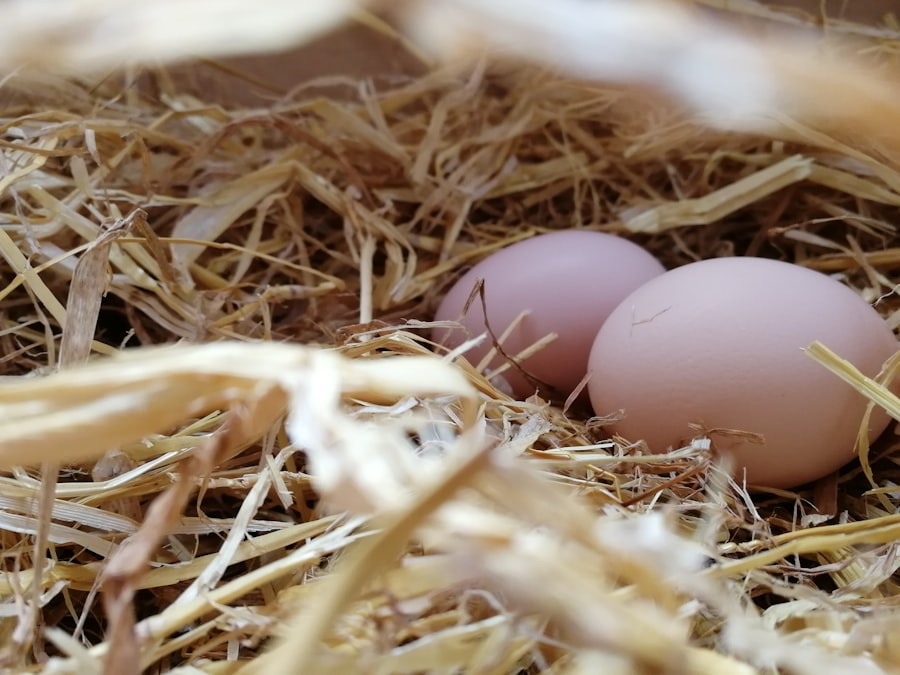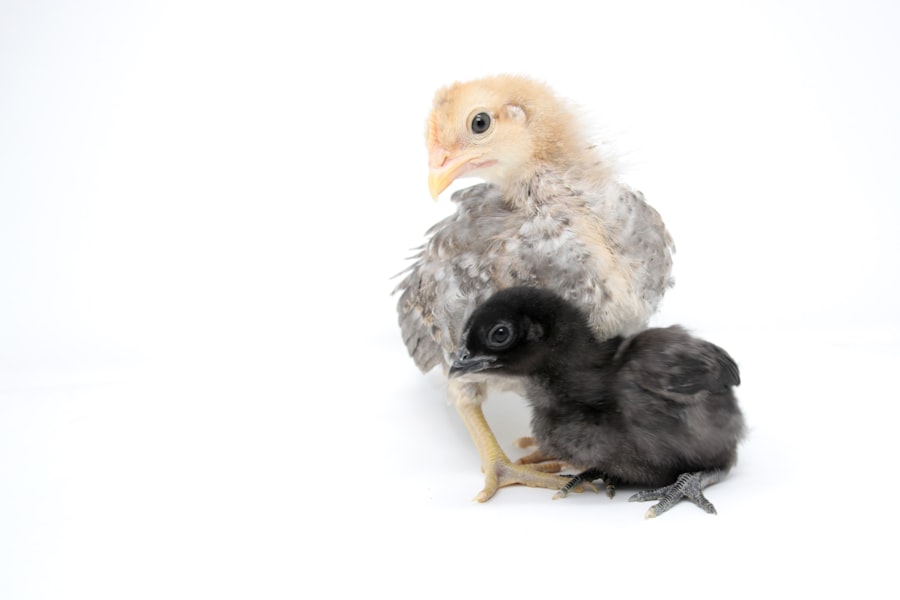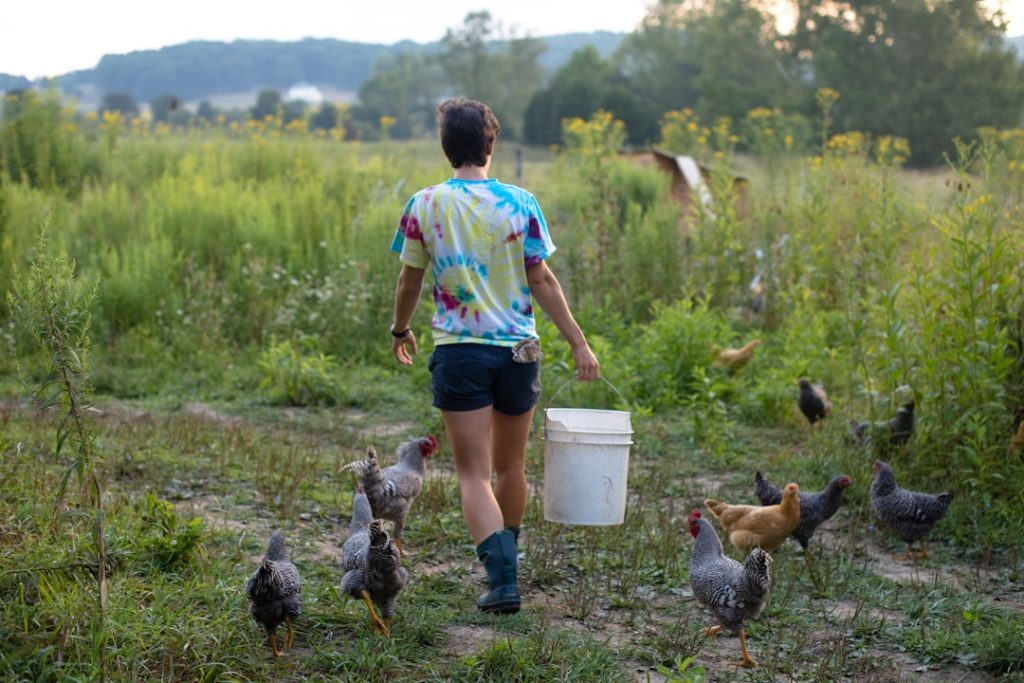Keeping backyard chickens requires understanding and compliance with local laws and regulations. These rules vary by location and may include restrictions on the number of chickens allowed, typically between 2 and 6 birds. Coop requirements, such as size, construction materials, and placement, are often specified.
Some areas mandate permits or licenses for chicken keeping. Zoning restrictions in certain localities may prohibit livestock or poultry within city limits. In such cases, variances or special permits might be necessary.
It is essential to research and familiarize oneself with these regulations to avoid fines, legal issues, and conflicts with neighbors or city officials. Specific guidelines may include:
1. Limits on the number of chickens
2.
Coop size and construction requirements
3. Minimum distance from neighboring properties
4. Permit or license requirements
5.
Zoning restrictions
By adhering to local laws and regulations, individuals can ensure a legal and positive experience with backyard chicken keeping. Consulting local government authorities is crucial to understanding the specific requirements in one’s area.
Table of Contents
- 1 Zoning and land use considerations
- 2 Health and safety concerns
- 3 Noise and nuisance ordinances
- 4 Permits and licensing requirements
- 5 Homeowner association rules
- 6 Best practices for keeping backyard chickens
- 7 FAQs
- 7.1 What are the legal considerations for keeping chickens in your back garden?
- 7.2 What are some common restrictions for keeping chickens in a back garden?
- 7.3 How can I find out if it is legal to keep chickens in my back garden?
- 7.4 What are the potential consequences of keeping chickens in my back garden if it is not allowed?
- 7.5 Are there any specific health or safety concerns associated with keeping chickens in a back garden?
Key Takeaways
- Understanding local laws and regulations is crucial for keeping backyard chickens legally.
- Zoning and land use considerations may restrict the number of chickens or coop placement.
- Health and safety concerns include proper sanitation and disease prevention for both chickens and humans.
- Noise and nuisance ordinances may limit the types of chickens or restrict crowing times.
- Permits and licensing requirements may be necessary for keeping backyard chickens in some areas.
- Homeowner association rules should be checked before keeping backyard chickens in a community.
- Best practices for keeping backyard chickens include providing proper shelter, food, and water, and regular health checks.
Zoning and land use considerations
Understanding Zoning Laws
Zoning laws dictate how land can be used within a specific area, including whether or not livestock or poultry are allowed. In some cases, there may be specific requirements for the size and location of chicken coops, as well as the distance they must be from neighboring properties.
Additional Restrictions and Guidelines
If your property is part of a homeowners’ association (HOA), there may be additional restrictions or guidelines that you need to follow. It’s important to understand these regulations and ensure that your property meets the necessary criteria for keeping chickens.
Applying for a Variance or Special Permit
If your property is not zoned for agricultural or livestock use, you may need to apply for a variance or special permit to keep chickens. This process typically involves submitting an application to your local zoning board and attending a public hearing to present your case. By understanding and addressing these zoning and land use considerations, you can ensure that you are in compliance with local regulations and avoid any potential conflicts with neighbors or city officials.
Health and safety concerns

When keeping backyard chickens, it’s important to prioritize the health and safety of both the birds and your family. Chickens can carry diseases such as salmonella, avian influenza, and E. coli, so it’s crucial to practice good hygiene and sanitation when handling them.
This includes washing your hands thoroughly after handling chickens or their eggs, as well as regularly cleaning and disinfecting their coop and nesting areas. In addition to disease prevention, it’s important to provide a safe and secure environment for your chickens to prevent injuries or predation. This includes ensuring that their coop is predator-proof, with sturdy fencing and secure latches on doors and windows.
It’s also important to provide adequate shelter, ventilation, and protection from extreme weather conditions to keep your chickens healthy and comfortable. Another important aspect of chicken health and safety is providing a balanced diet and access to clean water at all times. This includes offering a variety of feed options, such as pellets, grains, fruits, and vegetables, as well as providing access to grit for digestion.
By prioritizing the health and safety of your backyard chickens, you can ensure a positive experience for both you and your feathered friends.
Noise and nuisance ordinances
One common concern with keeping backyard chickens is the potential for noise and nuisance issues. Roosters are known for their loud crowing, which can be disruptive to neighbors in urban or suburban areas. As a result, many cities and municipalities have ordinances that prohibit the keeping of roosters within city limits.
It’s important to be aware of these regulations and ensure that you are only keeping hens if roosters are not permitted in your area. In addition to noise concerns, there may be ordinances related to odor, waste management, and property maintenance that could impact your ability to keep chickens. It’s important to be proactive in addressing these potential issues by keeping your coop clean and well-maintained, managing waste properly, and being considerate of your neighbors’ concerns.
By being a responsible chicken keeper and addressing any potential nuisance concerns, you can help maintain positive relationships with your neighbors and community. It’s also important to be mindful of noise levels when caring for your chickens, especially during early morning hours when they are most active. By being considerate of noise concerns and taking steps to minimize potential nuisances, you can help ensure a harmonious relationship with your neighbors while enjoying the benefits of keeping backyard chickens.
Permits and licensing requirements
In some areas, keeping backyard chickens may require obtaining permits or licenses from local government authorities. These permits may be necessary to ensure that you are in compliance with zoning laws, health regulations, or other local ordinances related to keeping poultry on your property. It’s important to research the specific requirements in your area and obtain any necessary permits before starting your backyard chicken flock.
Permit requirements may vary depending on factors such as the number of chickens you plan to keep, the size of your property, and whether you plan to sell eggs or meat from your chickens. Some areas may also require periodic inspections of chicken coops or property to ensure compliance with local regulations. By obtaining the necessary permits and licenses for keeping backyard chickens, you can avoid potential fines or legal issues and ensure a positive experience with poultry keeping.
It’s also important to stay informed about any changes in permit requirements or regulations related to keeping backyard chickens in your area. By staying up-to-date on local laws and requirements, you can ensure that you are in compliance with all necessary permits and licenses while enjoying the benefits of raising chickens on your property.
Homeowner association rules

Understanding HOA Restrictions
Some HOAs have specific restrictions on the number of chickens allowed, coop design and placement, as well as guidelines for waste management and odor control. It’s essential to review the HOA rules and regulations before starting a backyard chicken flock to ensure that you are in compliance with any specific requirements.
Seeking Approval from the HOA Board
In some cases, you may need to seek approval from the HOA board before keeping chickens on your property. This may involve submitting a proposal outlining your plans for keeping chickens, including details on coop design, waste management, and potential impact on neighboring properties.
Maintaining Positive Relationships
By being proactive in addressing any HOA rules or guidelines related to keeping backyard chickens, you can help maintain positive relationships with your neighbors and community. Open communication is key to fostering understanding and support for your poultry-keeping endeavors within the community.
Best practices for keeping backyard chickens
When it comes to keeping backyard chickens, there are several best practices that can help ensure a positive experience for both you and your feathered friends. Providing a safe and secure coop is essential for protecting your chickens from predators and extreme weather conditions. This includes ensuring that the coop is well-ventilated, predator-proof, and provides adequate space for roosting and nesting.
In addition to coop design, it’s important to provide a balanced diet for your chickens that includes a variety of feed options such as pellets, grains, fruits, and vegetables. Access to clean water at all times is also crucial for maintaining chicken health and well-being. Regularly cleaning and maintaining the coop is essential for preventing disease and ensuring a clean living environment for your birds.
Another best practice for keeping backyard chickens is practicing good hygiene when handling the birds or their eggs. This includes washing your hands thoroughly after handling chickens or their eggs, as well as regularly cleaning and disinfecting their coop and nesting areas. By prioritizing the health and safety of your backyard chickens, you can help ensure a positive experience for both you and your feathered friends.
Overall, understanding local laws and regulations, zoning considerations, health and safety concerns, noise ordinances, permits and licensing requirements, homeowner association rules, and best practices for keeping backyard chickens are all essential aspects of successfully raising poultry on your property. By being proactive in addressing these factors and staying informed about local regulations, you can enjoy the many benefits of keeping backyard chickens while maintaining positive relationships with your neighbors and community.
If you’re considering keeping chickens in your back garden, you may also be interested in learning about what vegetables quails eat. According to Poultry Wizard, quails enjoy a variety of vegetables as part of their diet. Understanding the dietary needs of different poultry can help you make informed decisions about keeping them on your property.
FAQs
What are the legal considerations for keeping chickens in your back garden?
In many areas, there are local ordinances and regulations that dictate whether or not you can keep chickens in your back garden. These regulations may cover issues such as the number of chickens allowed, coop requirements, and distance from neighboring properties.
What are some common restrictions for keeping chickens in a back garden?
Common restrictions for keeping chickens in a back garden may include limits on the number of chickens allowed, requirements for coop size and construction, and regulations regarding noise and odor.
How can I find out if it is legal to keep chickens in my back garden?
To find out if it is legal to keep chickens in your back garden, you can check with your local government or municipality. They will be able to provide you with information on any regulations or restrictions that apply to keeping chickens in your area.
What are the potential consequences of keeping chickens in my back garden if it is not allowed?
If you keep chickens in your back garden without following local regulations, you may face fines or other legal consequences. It’s important to research and understand the rules in your area before deciding to keep chickens.
Are there any specific health or safety concerns associated with keeping chickens in a back garden?
There are potential health and safety concerns associated with keeping chickens in a back garden, such as the spread of disease, attracting predators, and creating odors or noise that may disturb neighbors. It’s important to take these factors into consideration before deciding to keep chickens.
Meet Walter, the feathered-friend fanatic of Florida! Nestled in the sunshine state, Walter struts through life with his feathered companions, clucking his way to happiness. With a coop that’s fancier than a five-star hotel, he’s the Don Juan of the chicken world. When he’s not teaching his hens to do the cha-cha, you’ll find him in a heated debate with his prized rooster, Sir Clucks-a-Lot. Walter’s poultry passion is no yolk; he’s the sunny-side-up guy you never knew you needed in your flock of friends!







